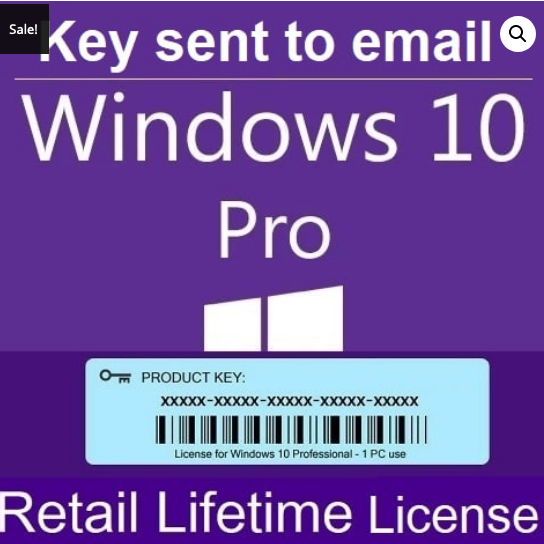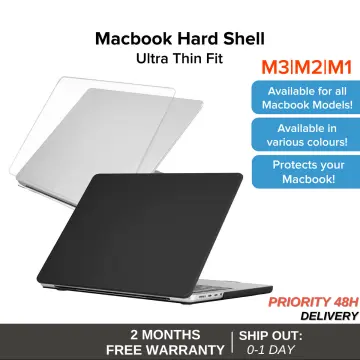Top Tips On Choosing Windows Microsoft Office Professional Download Sites
Wiki Article
Top 10 Tips On Official Certificates Of Authenticity (Coa) When Buying Windows 10/11 Pro/Home Products
It is recommended to be looking for a Certificate of Authenticity, or COA when you purchase Windows 10/11 Pro/Home activation/license keys. This is essential if your goal is to purchase a legitimate product. The COA, which is usually provided with retail and OEM licenses, is a tangible or electronic proof that the software you're buying is genuine. Here are 10 tips to keep in mind when dealing with COAs.
1. Know what an COA is.
A Certificate of Authenticity, also known as a sticker or label, confirms the authenticity of Windows keys for products. For physical copies the hologram will usually be included along with an alphanumeric, unique product key.
It is important to know the look of the COA to establish whether the key you bought is valid. It's usually found on product packaging or, in the case of to OEM versions that are connected to computers.
2. Be sure to look for anti counterfeiting and Holographic Features
Genuine COAs are protected by anti-counterfeiting mechanisms like holographic images and color-shifting ink.
These security features holographic are designed to assist you recognize fake COAs.
3. Verify the COA using Microsoft's Resources
Microsoft provides tools to verify the authenticity of an COA. Microsoft has guidelines on its website regarding the way a genuine COA ought to look like, and includes example images for reference.
Be aware of these functions so that you can know what to expect when you purchase the product key.
4. Be wary of COAs that have no product key
A genuine COA for Windows always includes a unique product key. COAs that don't include a unique product key, or include an unreadable or modified product key should not be used.
The key must not change and must be legible, clear, and official.
5. Buy from Microsoft Authorized partners and trusted sellers
You should only buy from Microsoft authorized partners, certified sellers or reputable electronic retail stores. These sellers usually offer genuine COAs with the key.
Avoid buying from third-party or from unknown sources, since the authenticity of the COA cannot be confirmed.
6. Digital Keys Without COA
If you purchase an online key or license the seller has to provide a digital COA, or proof of authenticity, especially if this is an OEM key or retail key. When purchasing second-hand or used computer equipment, this is very vital.
If no copy of the COA or evidence of authenticity is provided, consider it a red flag.
7. Verify that the COA is in line with your product
The COA details should match the information on your Windows version (e.g. 32-bit, or 64-bit). Incorrect or unreliable information could suggest that the item is copyright.
The COA for OEM licenses must be in line with the name of the brand as well as the model number of the previously installed device.
8. Do not use COAs that are damaged or changed
If you receive a copy of the COA by mail and you are not sure, look at it to determine whether it appears altered or damaged. The presence of scratches, peeling or missing sections may indicate that the COA was copied or removed from an other device.
If the COA has been damaged, it could be a sign that the key has been previously used, or was not genuine.
9. Understand that not all COAs can be Transferrable
If you are using OEM versions Your COA will be affixed to the original hardware of your PC. It is not transferable for upgrading or replacing the PC. Ensure you understand whether the COA is intended for a single device or if it can be transferred.
Retail licenses are generally the only ones that come with a COA. This lets you be more flexible in case you decide to upgrade your device.
10. Keep a copy for future reference
You can keep a physical or digital duplicate of your COA and product key for future use. This could be helpful if you need to reactivate Windows or verify authenticity or even contact Microsoft support.
It is important to store it securely to ensure that the key is not lost in the case of an COA getting lost or damaged.
Other Tips
Verify Serial Numbers. Certain COAs come with serial numbers, which you can confirm with the manufacturer or reseller.
Do not remove COAs from original Hardware: OEM licenses require that the COA remain on the hardware.
Keep receipts when purchasing a license that includes the COA it is recommended to save the receipt as proof of the purchase.
Paying attention to COA details, verifying authenticity features, and purchasing from trusted sources You can be sure that you're purchasing a genuine Windows 10/11 product key that will remain in good standing and safe for a long time. Take a look at the recommended windows 11 license key for site examples including buy windows 10 pro, Windows 11 key, buy windows 10 license, buy windows 10 pro, windows 10 key product key, buy windows 11 product key, windows product key windows 10, windows 10 pro license key, windows 10 pro product key, get license key from windows 10 and more.

Top 10 Tips On The Type Of License Type When You Purchase Microsoft Office Professional Plus 2019/2021/2024
It's important to know the different license types when you purchase Microsoft Office Professional Plus 2019 or 2021. This will allow you to choose the best one for your requirements. Different licenses have different restrictions, terms and options for support. Here are ten suggestions to guide you through different license types.
1. The most commonly used types of licenses
Microsoft Office Professional Plus licenses are available through Retail, OEM and Volume Licensing. Each type has specific conditions and terms:
Retail: An initial purchase typically tied to one person. Can be transferred to a different device if necessary (within the same account of the user).
OEM The device is locked that it is mounted on and can not be transferred. Often cheaper but less flexible.
Volume Licensing (also called Multi-user License) is ideal for businesses or educational institutions.
2. Retail Licenses for Flexibility
Retail Licenses offer the most flexibility. It is possible to install Office on any device, and then transfer the license onto a new PC or upgrade. It is the best option for individuals who might upgrade their hardware over time or move devices.
3. OEM Licenses are less expensive Cost
OEM licenses, although less expensive, are usually dependent on specific devices and can't be moved. They are meant for computers that have Office installed by the manufacturer. OEM licensing may save you the cost of customizing your PC but it could limit your options.
4. Know the basics of Volume Licensing
Volume Licensing can be used by businesses, government organisations and educational institutions. This may be your most economical option if you're buying Office for many computers or users. It has other benefits too, including central management, deployment that's easier, and discounts for volume.
5. Multiple Device Licenses Multiple Device Licenses
Retail licenses typically cover the installation of a couple of devices. Before purchasing, ensure you are aware of the amount of devices covered under the license.
6. Verify that the license transferability is possible
Retail licenses can generally be transferred between devices (as as they're removed from the prior device) however, OEM licenses are locked to the original device and can't be moved. This is an important aspect to consider if you intend to switch computers often.
7. Consider User Licenses as opposed to Device Licenses
Some licenses are assigned per user, whereas others are assigned to devices. When purchasing Office software for a single person who is able to access Office across several devices and subscriptions, you should look at the user-based licenses.
8. Evaluate the support and updates
Microsoft offers regular updates for retail licenses as well as bulk licenses. OEM licenses are likely to have limited or no support. They could also be unable to receive regular updates when the device they're connected to stops being supported by the manufacturer.
9. Understand Licensing for Upgrades
Volume Licensing and Retail Licenses can give you the right to upgrade Office to the most current version at a lower cost or through Microsoft Software Assurance.
OEM licenses usually do not come with upgrade rights. You might need purchase a separate license to upgrade Office to a later version.
10. License Agreement Terms: Check them out
The Microsoft license agreement is always recommended to read before buying Office Professional Plus. The agreement for licenses will outline any restrictions, rules regarding transfer, as well as rights for use on different devices, or for specific purposes. Understanding the terms helps you avoid being caught off guard by unexpected restrictions.
The article's conclusion is:
Your needs are what will determine the license type you pick for Microsoft Office Professional Plus 2019. 2021 or 2024, depending on whether you are an individual, a firm or an organisation. Understanding the differences between Retail, OEM and Volume Licensing will allow you to make educated decisions based on flexibility, cost and support. Review the terms of the license and ensure you're buying the correct version. Follow the best Microsoft office 2021 professional plus for blog tips including buy microsoft office 2021, Microsoft office professional plus 2021, Ms office 2021, Office 2021 key, Ms office 2021 pro plus, Microsoft office 2024 download, Ms office 2021, Office 2019, Office 2019 professional plus, Microsoft office 2024 download and more.
